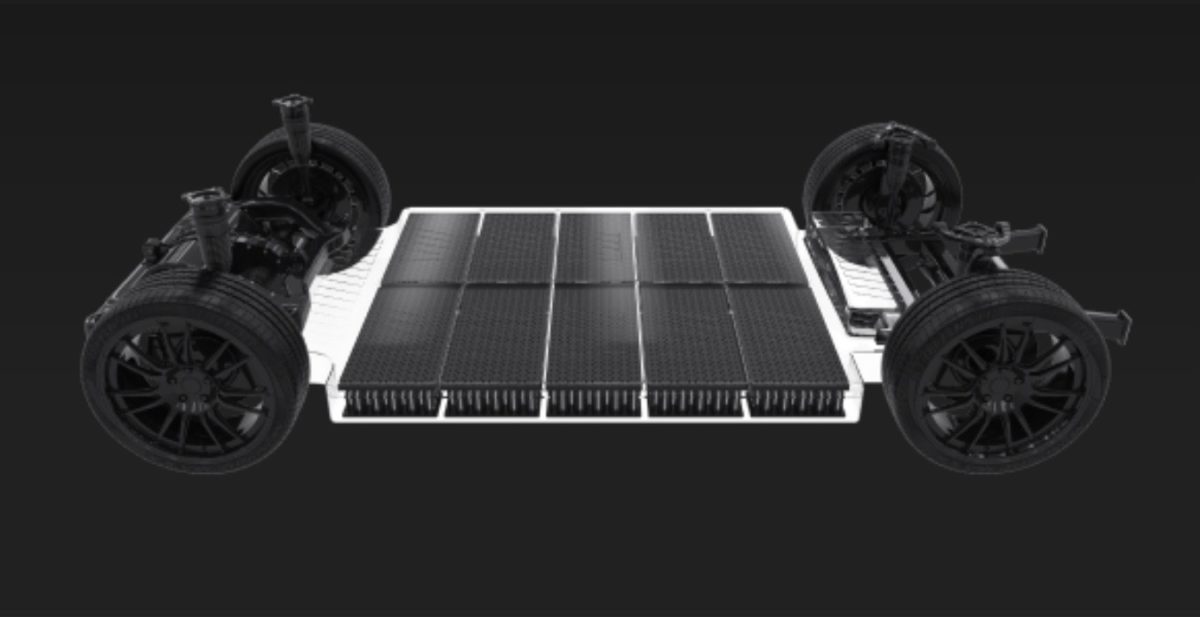While many in Brisbane will be celebrating the announcement that the brown snake city will be hosting the 2032 Olympic and Paralympic Games, Brisbane-based battery case developer Vaulta is also celebrating the award of a $297,500 Accelerating Commercialisation grant from the Federal government for its electric vehicle (EVs) battery casing.
Vaulta’s innovative blend of graphene and polymer in its battery casings have great potential as low-cost and light-weight battery modules for the coming wave of EVs.
Battery casings in EVs help manufacturers save time and money on weight and space in their vehicles, as well as improving safety. Vaulta claims its design reduces the number of parts in EV battery casing from approximately 20 to fewer than a handful.
“This funding from the Federal government recognises the opportunities opened up by our world-first design,” said Vaulta founder and director Dominic Spooner, who runs Vaulta out of his shared garage in Brisbane’s north, and whose design also improves thermal and electrical conductivity and ensures greater reuse and recycling of parts.
The announcement comes on the back of several high-profile memorandum of understandings (MoUs) with Canada’s Braille Energy Systems, which produces the lithium batteries used in Aussie V8 Supercars, Focus Graphite, Grafoid and Quickstep, Australia’s largest independent aerospace composites manufacturer.
Minister for Industry, Science and Technology Christian Porter said the funding will enable supported projects to commercialise their products and attract further investment to enter new local and global markets. Vaulta’s is “exactly the kind of job-creating innovations we want to see and support,” continued Porter, “especially in the Covid-19 recovery.”
EV battery technology is rapidly becoming and enormous industry, and any innovation toward the streamlining and improvement of EV batteries along with their sustainability will therefore prove enormously important.
For instance, Greenpeace has said that approximately 12.85 million tonnes of lithium-ion batteries will no longer be useful for e-mobility in China alone during the next decade. Repurposing those devices for energy storage use, rather than manufacturing new batteries, would save 63.34 million tons of carbon emissions. The environmental NGO called on China’s leaders to put the repurposing of electric vehicle (EV) batteries at the core of its strategy for 2060 carbon neutrality. Technologies like Vaulta’s might just be the ticket.
This content is protected by copyright and may not be reused. If you want to cooperate with us and would like to reuse some of our content, please contact: editors@pv-magazine.com.









1 comment
By submitting this form you agree to pv magazine using your data for the purposes of publishing your comment.
Your personal data will only be disclosed or otherwise transmitted to third parties for the purposes of spam filtering or if this is necessary for technical maintenance of the website. Any other transfer to third parties will not take place unless this is justified on the basis of applicable data protection regulations or if pv magazine is legally obliged to do so.
You may revoke this consent at any time with effect for the future, in which case your personal data will be deleted immediately. Otherwise, your data will be deleted if pv magazine has processed your request or the purpose of data storage is fulfilled.
Further information on data privacy can be found in our Data Protection Policy.